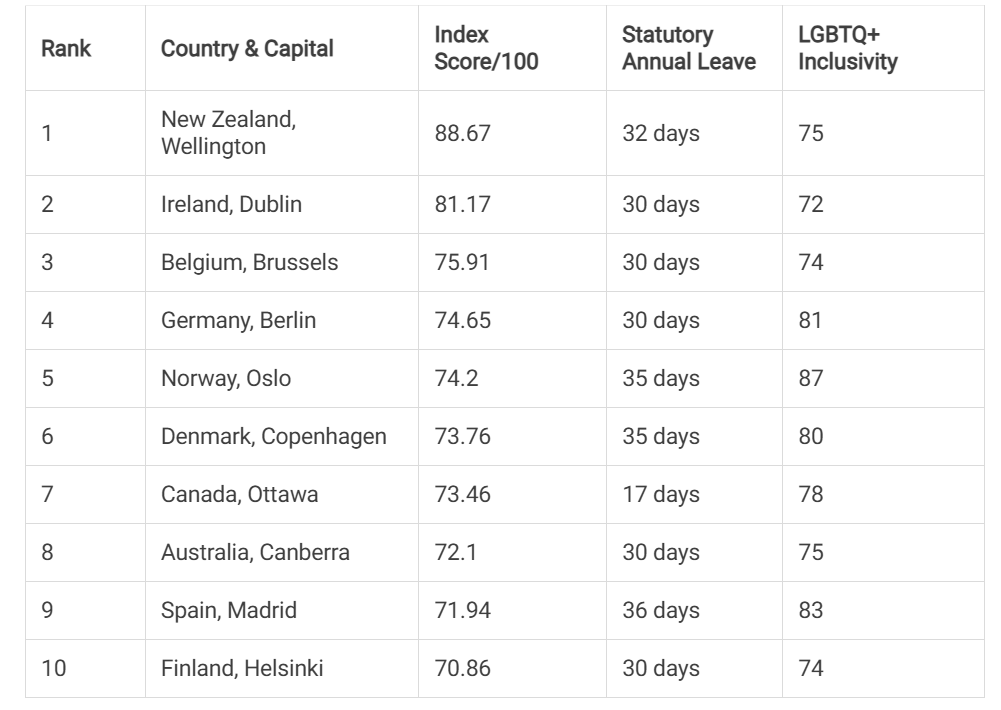- By Sakshi Srivastava
- Sat, 19 Jul 2025 04:49 PM (IST)
- Source:JND
Global Life-Work Balance Index 2025: In the 2025 edition of Remote’s Global Life-Work Balance Index, New Zealand has retained its 1st position for the third year in a row. The country's performance improved thanks to a hike in minimum wage and continued prioritization of employee welfare. The index ranks the top 60 GDP countries based on metrics like average working hours, minimum wage, statutory leave, healthcare, and overall public happiness.
Who Dominates Top 10?
Seven of the top 10 countries on the list are from Europe, including Spain, France, and Finland. These nations scored highly due to generous statutory leave, inclusive policies, and widespread access to healthcare and social support systems. Importantly, no countries from Asia or the MENA (Middle East and North Africa) regions were included in the top 10 for 2025.  World’s 10 best countries for life-work balance in 2025. (Data Source: Remote – Global Life-Work Index 2025)
World’s 10 best countries for life-work balance in 2025. (Data Source: Remote – Global Life-Work Index 2025)
A Shift In Global Priorities
The report notes a global rethinking of priorities. Remote, the platform behind the index, deliberately uses the term “life-work balance” instead of “work-life balance,” asserting that life must come first, with work existing to support and enrich it. This rephrasing reflects the shifting global attitude toward employment culture after the pandemic and in light of widespread burnout and “always on” digital work environments.
ALSO READ: From One-Person Town To 100-Acre Pizza Feasts: 10 Shocking Facts About USA
Why Not US And China?
Despite their economic power, both the United States and China ranked poorly in the 2025 index. The US placed 59th out of 60 countries, just above last-place South Korea, largely due to minimal paid leave, lack of federal paid sick days, and increasing work hours. China also failed to make it into the top tiers, attributed to high pressure work culture and limited social safety nets. In contrast, India ranked 42nd, with a score of 45.81 out of 100, helped slightly by its 35 days of annual statutory leave but held back by long hours and weaker healthcare access.
What The Numbers Tell Us
According to the 2025 Randstad Workmonitor survey, 83% of employees globally now consider work-life balance more important than pay, marking a significant change from pre-pandemic attitudes. The report emphasizes that companies ignoring these demands may face increased attrition and employee dissatisfaction.
ALSO READ: Spies, Cyber Wars, And Secrets: Top 5 Intelligence Agencies In The World
How Rankings Were Calculated
Remote evaluated each country using seven key factors:
1. Minimum wage
2. Sick and maternity leave
3. Healthcare quality and access
4. Public happiness levels
5. Average working hours
6. LGBTQ+ inclusivity
7. Statutory annual leave

